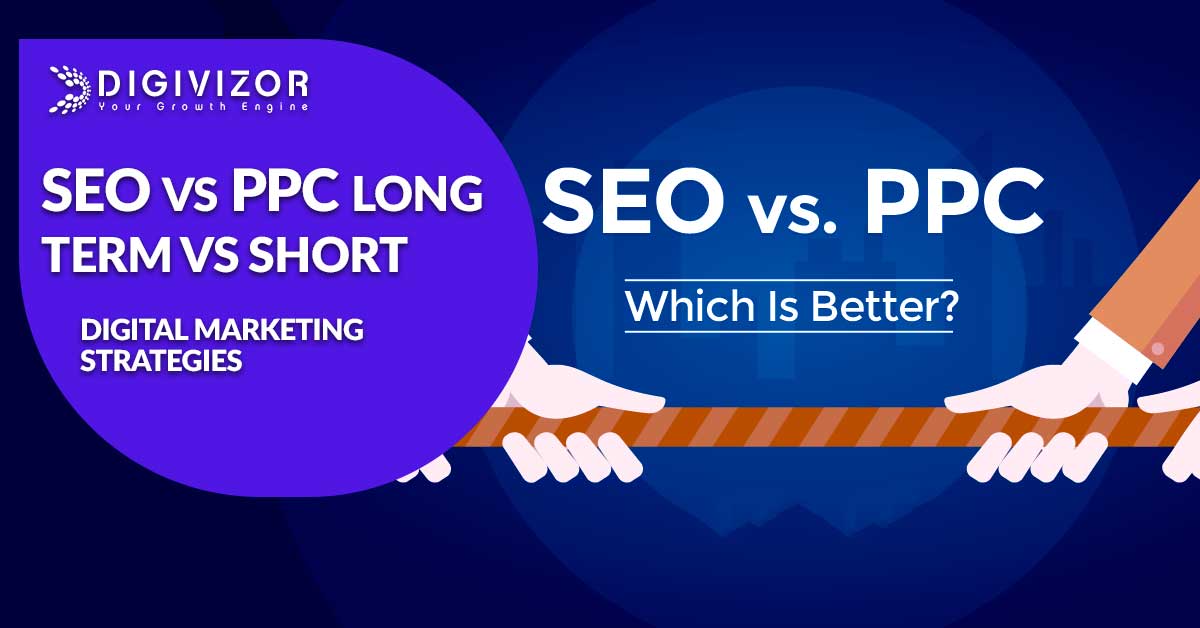
You are investing in an online marketing strategy is the best thing that one can do for their website. With online retail increasing, you will want to be more strategic with marketing to compete with other businesses and stay in the game. Traditional in-person marketing techniques are not useful for e-commerce and digital service sales, so you must understand the short-term and long-term digital marketing strategies that can help your business succeed.
What is SEO?
Search Engine Optimization (SEO) is a long-term digital marketing strategy that helps you generate traffic to your website for free by enhancing your search engines’ visibility. SEO plays an integral part in making your website appear more valuable to popular search engines such as Google. It is a relatively long time process and takes a lot of patience to achieve outstanding results. You cannot rank your site with this in a glimpse, but it is economical and beneficial for your business’s long run.
A few components are associated with the positioning of your site on Google:
-
Website’s age of the domain
-
Content that you post on your site
-
Number of inbound links your site is getting
-
Keywords you are utilizing for on-site optimization.
It isn’t that simple to be found in the natural quest for any catchphrase. For example, it isn’t easy to get a music store to show up for search identifying with a retail attire store. In any case, watchwords like “athletic pants” or “apparel store” are considerably more sensible focuses, as long as you have zeroed in on the geographic area.
SEO: advantages and Uses
Optimizing your website for Google and search engine is ideal for businesses who want to rank for the keywords that will stay steady. For example, if you’re going to list a service or product, you need to opt for SEO services as compared to PPC ads for driving leads to your website.
Similarly, organic results are more prone to be clicked than the PPC ad results. People are aware of the difference between the two and will trust the standard search results for the paid results.
What is PPC?
Pay-per-click (PPC) is a short term marketing strategy used widely by web development agencies in which advertisers have to pay a specific fee each time the online users click on one of their advertisements. These ads generate online traffic to your website using relevant keywords. A straightforward PPC requires detailed research on keywords being searched by your targeted audience related to your niche. You will need an extravagant landing page to convert your potential leads into clients.
How Does Google Adwords Work?
Advertisers can make advertisements that can be set to show up when a client types in an inquiry question into Google. Investigate the feature area underneath; these are paid promotions.
How Can It Work?
Every advertiser chooses some keywords for which they need their advertisements to show up. The promotion comprises a title, two portrayal lines, and a showcase URL.
What position do my advertisements show up in?
The Adwords network is a sales style offering battle for positions. For the most part, the top promoter pays more to be there than somebody in the lower ranks. In any case, different variables decide the value you pay, for example, the importance of your promotion to the keyword.
What amount do I pay per click?
As referenced previously, Adwords is a bartering-style ‘supply/request’ commercial centre, and promoters can change the sum they are happy to offer on every watchword. As you can picture, a few ventures are more productive than others, and for the most part, will have a higher snap cost. It likewise comes down to the watchword level,
Pros of PPC
- Quick: you can be number #1 on a Google output for your ideal watchwords within an hour.
- More quantifiable than SEO.
Cons of PPC
- It’s expensive, so you need to guarantee that your venture pays off.
SEO and PPC
We will look at both SEO and PPC. They both have advantages and disadvantages, and they work best when they support each other. When you blend in PPC and SEO, you like to generate unbeatable results that are better than your competitors.
Some of the benefits of merging PPC and SEO are:
- Conversion data and keywords from PPC can be integrated into organic search (SEO).
- The total volume of traffic can be enhanced if you target clicks in paid and organic for high-ranking keywords.
- A/B testing of ad copy and landed pages can be integrated into the organic listings and landing pages.
- Expensive keywords, high volume or low converting keywords can easily be moved from PPC to organic search.
- Remarketing lets you stay on the screen of visitors after the initial touch through organic search and customized messaging around the engagement of the website.
- First, test the keyword strategy in PPC before committing to long-term SEO strategies.
- Target your users at all parts of the client’s journey from research to comparison to purchase with commercial keywords.
- Boost your confidence and brand awareness by enforcing healthy organic and paid visibility.
In our experience dealing with thousands of businesses, an integrated search strategy that blends both PPC and SEO is the best approach. Results are sure to improve in every medium by using both paid and organic search. It may not be right for every business, but for steady growth, well-carved marketing, you will need an outstanding strategy rather than looking at SEO or PPC as general.

